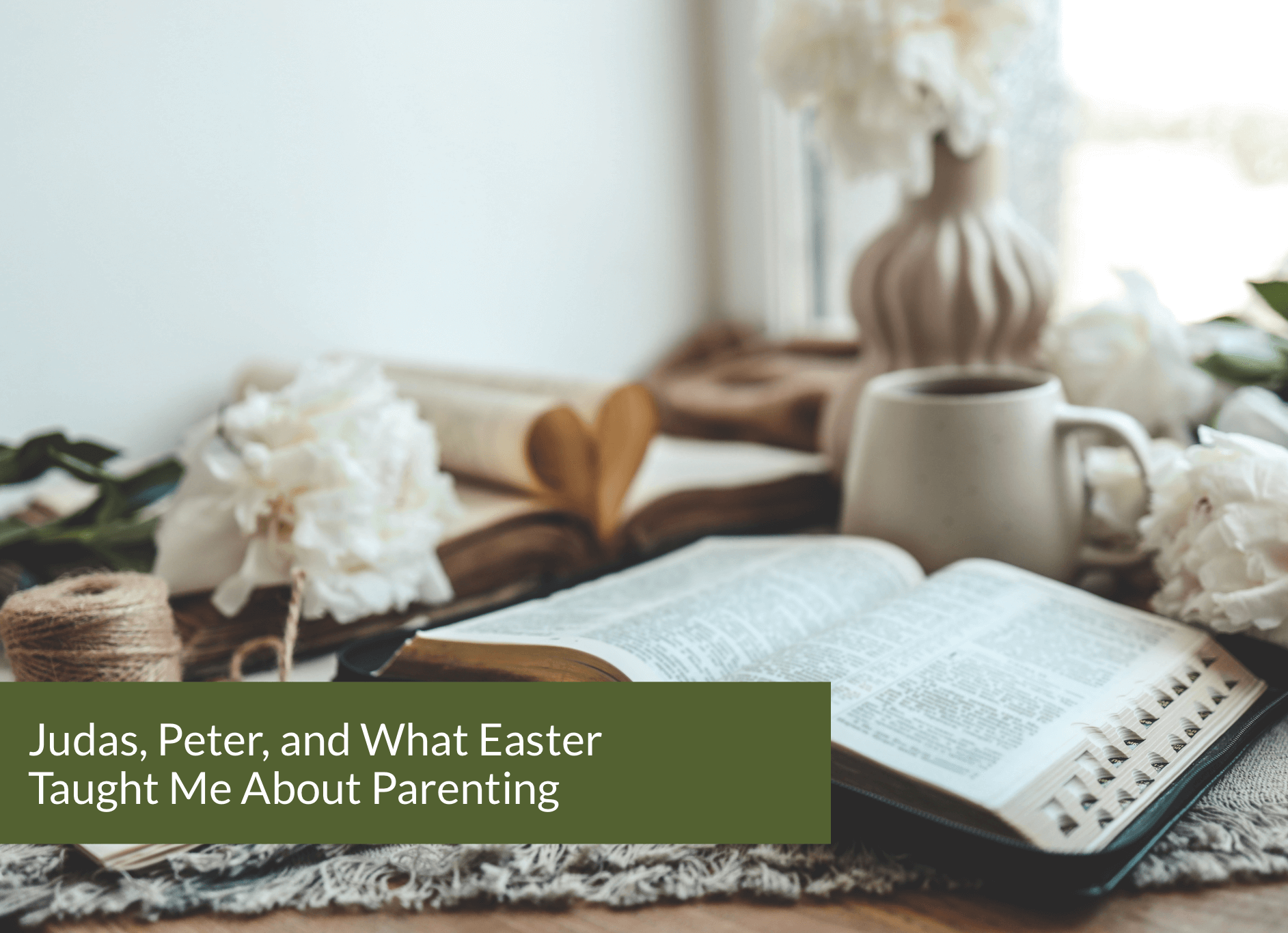
If you're raising a child with PDA (clinically known as Pathological Demand Avoidance, though many in the autistic community prefer Persistent Drive for Autonomy), you know what it’s like to live in the land of no.
No to getting dressed.
No to brushing teeth.
No to leaving the house.
No to things they actually want to do.
No while they're doing the thing you asked them to do.
No that seems to come before they even hear the question.
It can be exhausting, confusing, even infuriating. And if you’re anything like me, it can leave you questioning yourself as a parent - or worse, questioning your child’s heart.
But Jesus tells a story that speaks directly to this place.
Read more...
This week, I’ve been reading through the resurrection story again - something I try to do slowly and intentionally every Easter season.
But this time, two names kept standing out to me in a way they haven’t before:
Judas and Peter.
Two of Jesus’ closest disciples.
Two men who loved Him.
Two men who, in His most vulnerable moment, betrayed Him.
Read more...Two men who loved Him.
Two men who, in His most vulnerable moment, betrayed Him.

This week, I’ve been reading through the resurrection story again - something I try to do slowly and intentionally every Easter season.
But this time, two names kept standing out to me in a way they haven’t before:
Judas and Peter.
Two of Jesus’ closest disciples.
Two men who loved Him.
Two men who, in His most vulnerable moment, betrayed Him.
Read more...Two men who loved Him.
Two men who, in His most vulnerable moment, betrayed Him.

There is a popular teaching in Christian parenting circles, sometimes stated outright but often implied: teach your children to obey you so that when they grow up, they will know how to obey God. With such a heavy burden, parents develop catchy phrases like, "Obedience is doing what I say, when I say it, with a happy heart," or "Obedience the first time, every time."
At first glance, this idea may seem logical, even biblical. But when we examine Scripture, we see that this approach goes beyond what Jesus actually teaches. In reality, it promotes legalism rather than true obedience, and it is rooted in a flawed understanding of both obedience and spiritual formation.
Read more...
For many of us, emotions can feel like a mixed blessing—“positive” emotions give spice and vitality to life, while “negative” emotions are the obstacles that lead us into sin and thus are something to suppress. But what if emotions, both the delightful ones and the uncomfortable ones are a precious gift from God?






